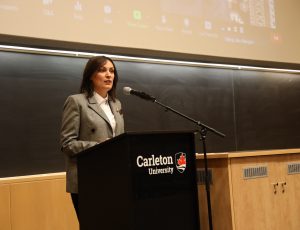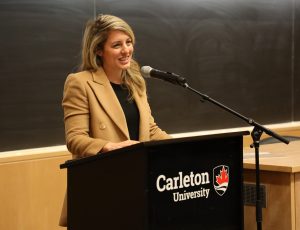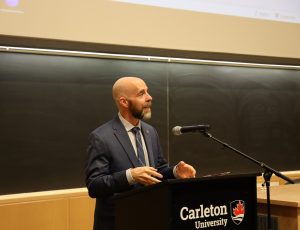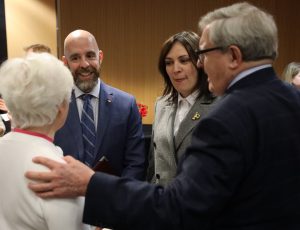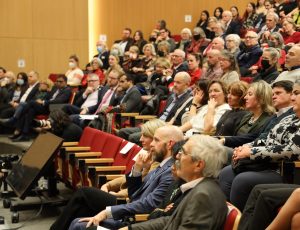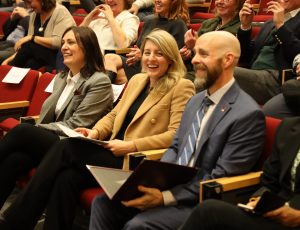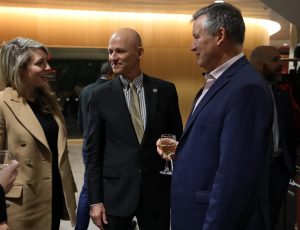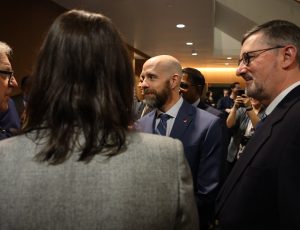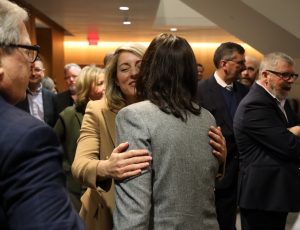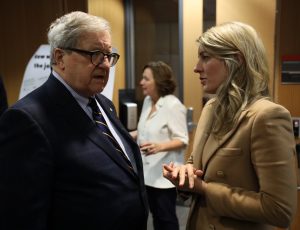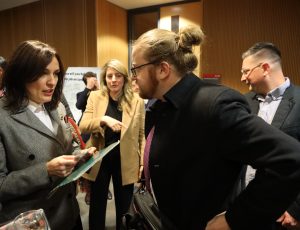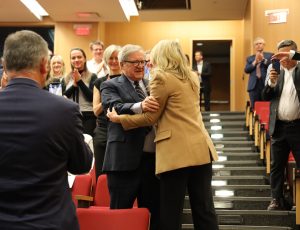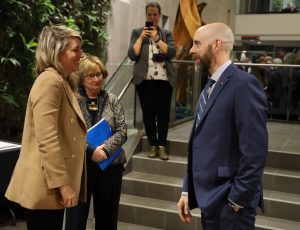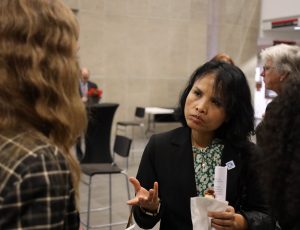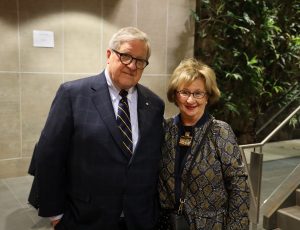By Jena Lynde-Smith
On Dec. 5, Carleton hosted the Hon. Mélanie Joly, Minister of Foreign Affairs, Lloyd Axworthy, former Minister of Foreign Affairs and Yuliya Kovaliv, Ukraine’s Ambassador to Canada along with many civil servants to celebrate the 25th anniversary of the signing of the Ottawa Treaty to Ban Landmines.
“It was a privilege to host this important celebration of a major Canadian achievement at Carleton University, in partnership with the Canadian Landmine Foundation,” said Carleton President and Vice-Chancellor, Benoit-Antoine Bacon.
“The Treaty played a critical role in reducing the global use of landmines and their dreadful effects, and it would not have been possible without the truly remarkable political courage and leadership of Foreign Minister Axworthy and his team.”
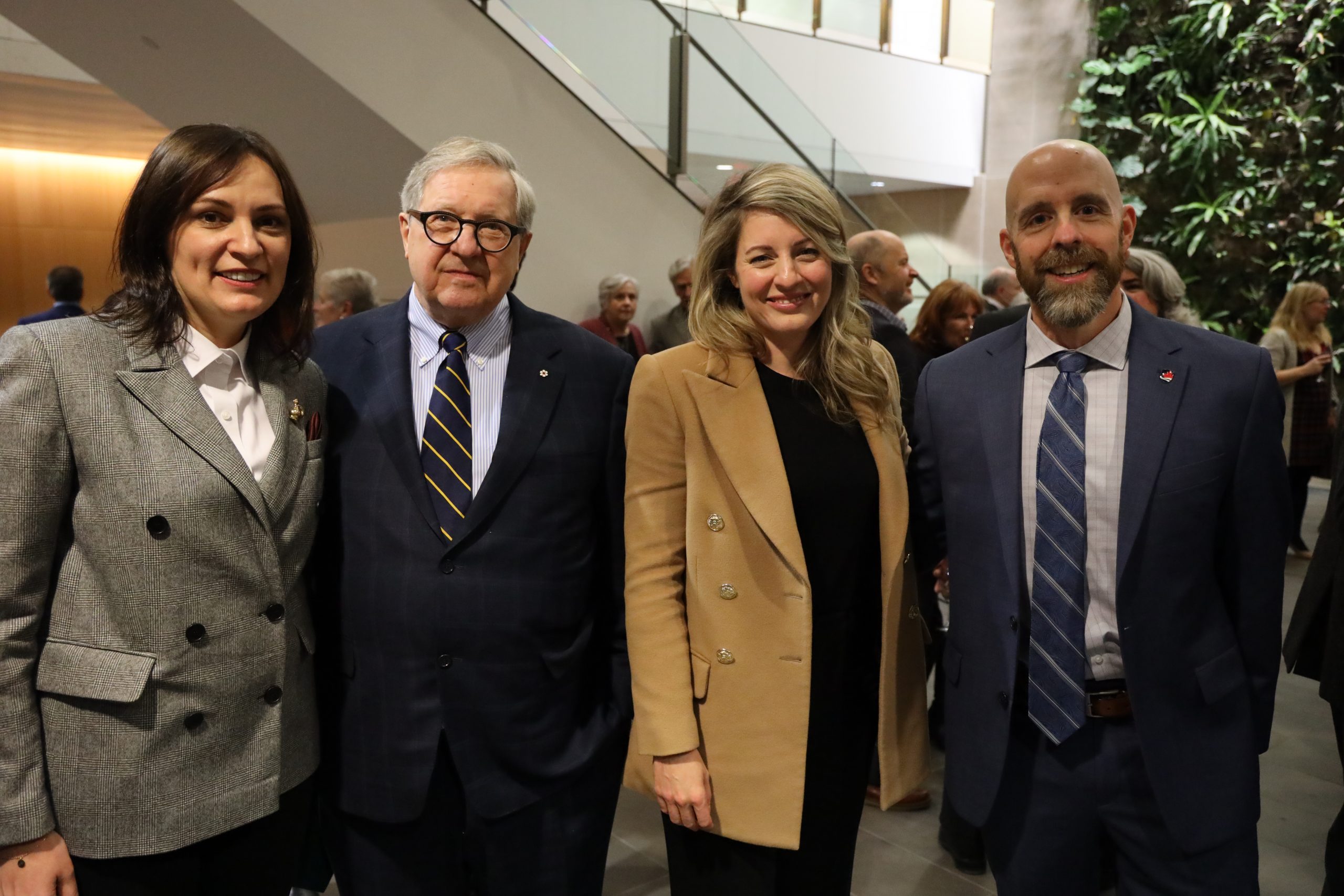
Yuliya Kovaliv (Ukraine’s Ambassador to Canada), Lloyd Axworthy (former Minister of Foreign Affairs), the Hon. Mélanie Joly (Minister of Foreign Affairs), and Benoit-Antoine Bacon (Carleton University’s President and Vice-Chancellor).
Organized by the Canadian Landmine Foundation, the event took place in Richcraft Hall in partnership with Carleton’s Norman Paterson School of International Affairs (NPSIA).
“We were pleased to partner with the Canadian Landmine Foundation to celebrate the 25th anniversary of the Ottawa Treaty banning landmines,” said Teddy Samy, director of NPSIA. “NPSIA faculty and alumni were involved in the Ottawa process 25 years ago, through a combination of academic discussions and analysis, together with NGO activism and public policymaking that remains unique to this day.”
The event featured the premiere of the documentary The Treaty which chronicles Canada’s leadership in the movement to prohibit the use of anti-personnel landmines. The film, directed by Richard Fitoussi, followed remarks from Minister Joly and Ukrainian Ambassador Kovaliv. It was followed by a panel discussion, moderated by journalist Evan Solomon, with Fitoussi, Axworthy and former diplomat Jill Sinclair. Cambodian landmine survivor Gniep Smoeun also addressed attendees.
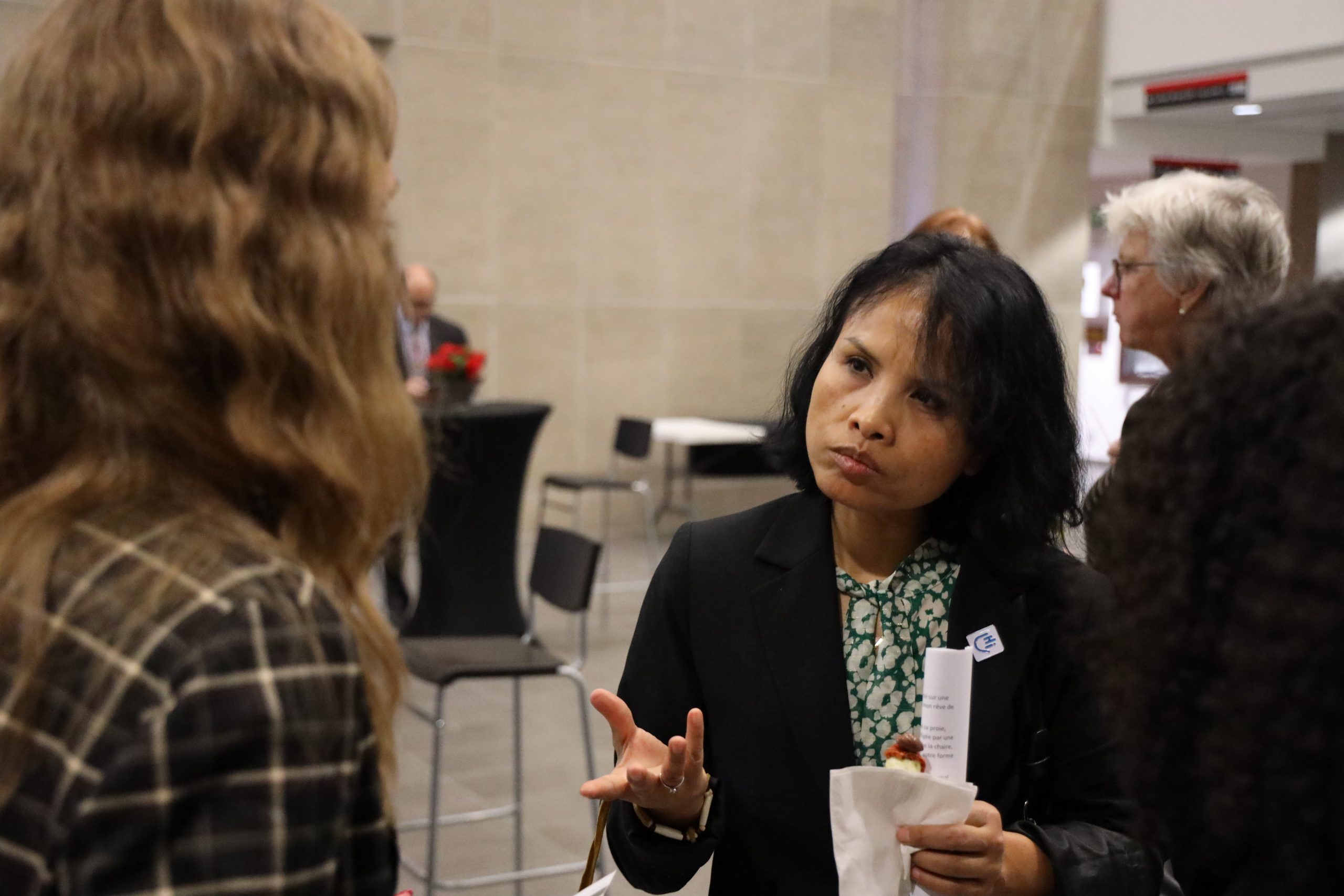
Gniep Smoeun speaks to an event attendee.
“The Treaty graphically and profoundly tells the story of the horror of landmines and the extraordinary, unprecedented process of civil society, multilateral institutions and governments, led by Canada, working together in achieving this Treaty,” said Axworthy.
In 1996 at a conference on the global landmine crisis, then Foreign Affairs Minister Axworthy issued a challenge to the international community: to return to Ottawa in a year to sign a treaty that would ban anti-personnel landmines. Just under 14 months later,122 countries returned to Ottawa to sign the Mine Ban Treaty. As of 2022, 25 years after its adoption, 164 countries have ratified the Ottawa Treaty, and 30 countries that were once heavily mined are now free of anti-personnel mines. The historic Ottawa Process and has since been widely studied and copied, as a new way of driving diplomacy on urgent global issues.
“The Ottawa Treaty is an important part of Canadian diplomatic history,” said Axworthy. “I am grateful to Carleton for hosting an event that honoured this moment.”
Monday, December 12, 2022 in Government, International
Share: Twitter, Facebook
